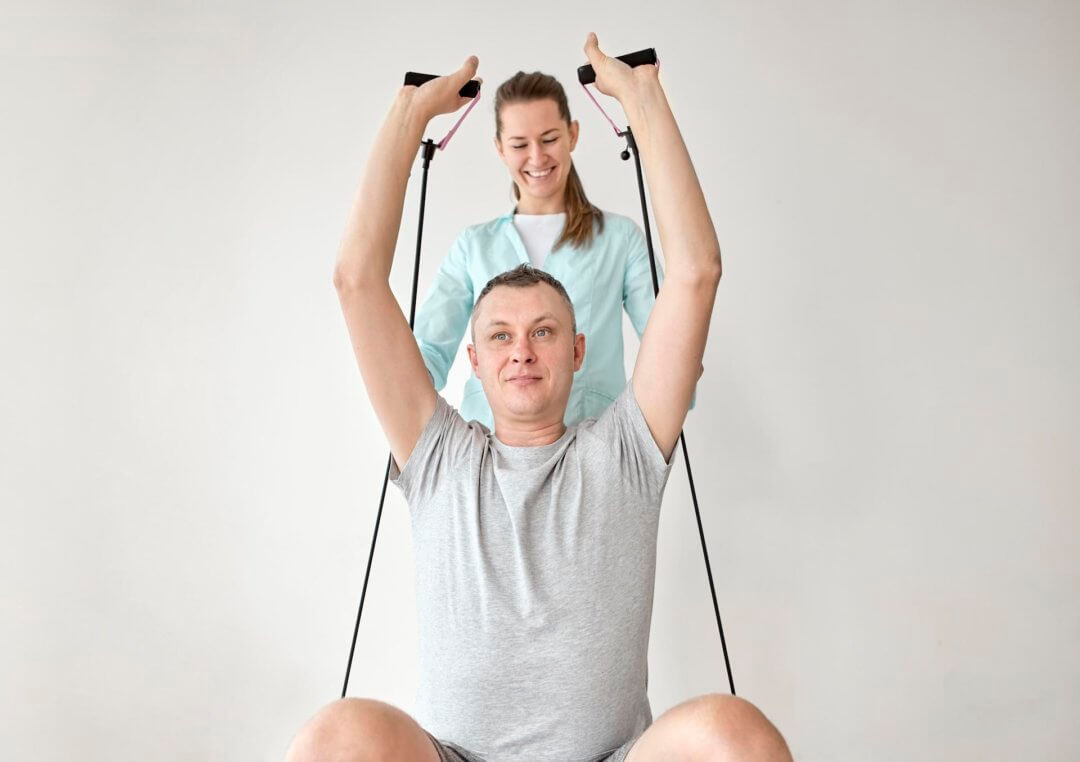Deadlines, meetings, exams, work stress have all become a part and parcel of our life – making a person feel anxious at least once in a day. But can we get off this chaos so as to bring peace to our life? Not really, the only escape here is to deal with all these problems appropriately.
Even this doesn’t mean you have to suffer through anxiety or depression all day long. Everything comes with its own set of limitations, and so is mental health issues. And if you ever feel that your issues are crossing the level and getting worse, then it’s important to step out and make the right decision.
An ignored anxiety or depression can worst impact the quality of your physical and mental health. Does this mean you should instantly go for medication? No, instead you can try physiotherapy!

But, Is Physiotherapy good for depression?
Yes, in fact, Mental health physiotherapy is a specialty within physiotherapy many patients have benefited from, to date. As compared to regular physiotherapy sessions, the sessions here are implemented in different health and mental health settings. The process here is highly person-centered and is usually provided to children, adolescents, adults, and older people suffering from severe, acute, and chronic mental health problems.
Mental health physiotherapist burwood often focus on empowering the individual’s overall wellness by promoting movement awareness into them. They follow certain physical activities and exercises to engage with patients better and relieve them with physical pain. The process is thus performed completely on the basis of available scientific and best clinical evidence. Many patients have seen many positive differences within themselves, some of the common benefits are as follows:
5 Benefits of Physiotherapy for Mental Wellness
1. Helps in Pain Management
A person who constantly suffers backaches, or any kind of continued pain or discomfort are more prone to get anxious which often leads to anxiety or depression. Moreover, frequent body aches are among major signs of depression which has to be treated to feel better.
The good news here is, physiotherapy can best help a patient get rid of such pains in three sessions or more. Firstly, the physiotherapist looks after the core source of the pain and then plans a treatment to reduce and manage the pain. Some of the common treatments used by physiotherapists are – soft tissue manipulation, ultrasound, massages, and more.
2. Improves Sleep Cycle
Abnormal sleeping patterns, even known as a type of sleep disorder, is one of the major symptoms of depression. Just an improper night’s sleep can lead to fatigue and headache the very next day. Moreover, if a person stays sleep deprived for a long period of time they will feel increased sensitivity to their pain.
For this, physiotherapists often help patients with pain-relieving exercises or appliances that they can do/use regularly to manage the pain. As a part of the treatment plan, therapists even give patients massages that could often facilitate sound sleep.
You may also like to read: Why Sleep Is So Important to Your Health?
3. Enhances Mood
While in depression, any minor instances can spoil an individual’s mood at any hour of the day. The effect is quite long-lasting, and the patient even overthinks about certain situations, which often leads to panic attacks. Hence, patients suffering from anxiety or depression are often recommended to do simple things that can uplift their mood.
And physiotherapy is all about physical treatment through movement and exercise, manual therapy, education and advice. Most of the time, therapists often recommend patients favorable exercises that release endorphins – the happiness hormone. The number of physical activities is hence increased by the therapist after each session to promote new brain cell growth, and increase positive mood-boosting neurotransmitters.
4. Boosts Self-confidence
The feeling of helplessness and lack of interest in routine activities are among the common symptoms of depression. Both of these signs often lead to loss of self-confidence, and the individual never wishes to give their best in the crowd. However, physiotherapists will help patients challenge their own selves to explore their inner abilities.
For example, doing exercises would feel challenging to a person suffering from depression, but slow body movements will make you feel better. The therapist will also involve the patient the most in the treatment, which will positively improve what the patients think about themselves.
During physiotherapy, most patients discover their physical capabilities the best. Some of the exercises performed during therapy are designed to promote physical health and essential self-perceptions like body image improvement, which works best for boosting self-confidence.
5. Increases Endurance
Physiotherapy is more than just injury recovery and pain relief, therapists here strive to increase endurance with regular exercising sessions. These exercises will help patients come out of their comfortable limits for a longer time. And since human minds are intimately connected to the body, with increased physical endurance, the mind also becomes stronger.
Closing Words on Physiotherapy and Mental Health
There were not many people aware of the fact that physiotherapy can even benefit a person with their mental health issues. But the above benefits clearly state how intertwined physiotherapy and mental health problems are. So, if you are struggling with depression and are facing physical symptoms like body aches, take physiotherapy sessions and give yourself a positive boost!

Featured Image: Physiotherapy photo created by freepik – www.freepik.com






1 Comment
Jen Rigley
March 28, 2022 at 8:27 pmI did not realize the positive impact of physiotherapy, good information.